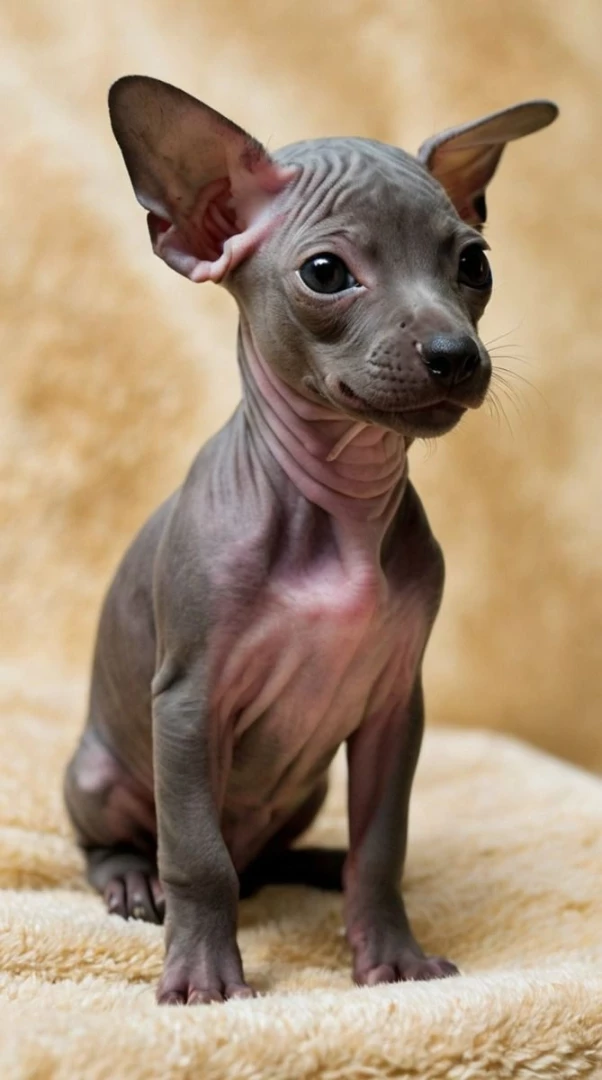
Peruvian Inca Orchid
About
The Peruvian Inca Orchid is an elegant, intelligent, and loyal breed that makes a unique and loving companion for those who can meet its needs. With their affectionate nature, distinctive appearance, and adaptable temperament, they thrive in homes where they receive attention, socialization, and proper care. Their combination of ancient heritage, loyalty, and graceful agility makes them a cherished addition to households seeking an exotic and devoted canine friend.
 Breed Size
Breed Size
-
Weight (Male)
4-25 kg
-
Weight (Female)
4-25 kg
-
Height (Male)
25-65 sm
-
Height (Female)
25-65 sm
 Coat
Coat
-
Fur Type
Hairless/Smooth
-
Color
One color
 Care
Care
-
Walk
>30 minutes/day
-
Breed group
Miscellaneous Class
-
Breed Size
S
-
Demeanor category
Reserved with Strangers
 Breed Traits
Breed Traits
-
Barking
-
Good with young children
-
Drooling
-
Energy level value
-
Grooming frequency value
-
Good with other dogs
-
Trainability
 Breeds Club Recognition
Breeds Club Recognition
-
Trainability Category
>Agreeable
-
Temperament
>Affectionate, Loyal, Noble
Description
The Peruvian Inca Orchid is a medium-sized, ancient sighthound, originally bred in Peru over 1,000 years ago for hunting and companionship. This breed descends from pre-Columbian dogs, resulting in an intelligent, agile, and affectionate companion.
- Origin: Peru, developed for hunting and companionship.
- Smart and trainable: Quick learner with an independent nature.
- Loyal and affectionate: Forms deep bonds with its family.
- Energetic and agile: Requires daily exercise and mental stimulation.
- Hairless or coated variety: Hairless needs skincare; coated needs regular grooming.
The Peruvian Inca Orchid is a sensitive and elegant companion, excelling in lure coursing, obedience, and companionship. With proper training and early socialization, they become well-mannered, affectionate pets suited for active families and individuals.
